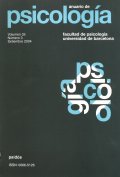Conceptualization of night and day. A cross-cultural study
Keywords:
Knowledge construction, conceptions of day and night, cross-cultural differences.Abstract
The development of the understanding of the concept of day andnight is studied in children from Barcelona and from the Karaja tribe in Brazil, of several ages. Different conceptions of this understanding are identified in the groups and compared with each other. The instruments used is a semi-structured interview, administered individually. A qualitative analysis of the answers to this interview identifiesfive conceptions in the Barcelona children andfive in the Karaja children, which are classified in four categories: (a) conceptions based on apparent perceptions, (b)
conceptions that articulate data on the apparent perception with cultural knowledge, (c) conceptions that are misinterpretations o f cultural knowledge and (d) scientijic conceptions. The distribution of the frequency of the two groups in the different conceptions indicates that a development of this knowledge exists, and is age-related. Results of the cross-cultural comparison reveal that the conceptions are fairly homogeneous, which is explained by a process of common construction and by the access of both
groups to a scientific explanation. The differences draw attention to the determination of the apparent perception in the initial construction of this knowledge.
Downloads
Published
2004-01-13
Issue
Section
Estudios
License
The authors who publish in this journal agree to the following terms:
Authors transfer to the publisher all copyright for the full term of protection and for all the world.
The authors can post a copy of their articles in accordance with the policy of free access to the journal.


